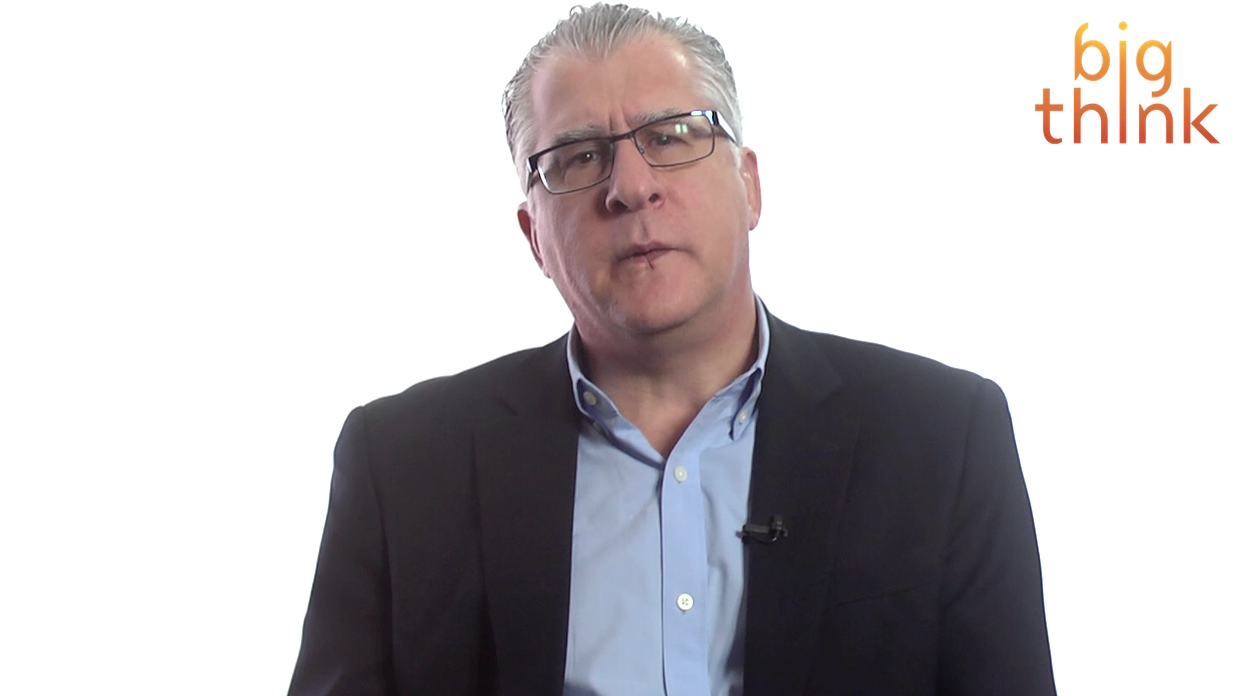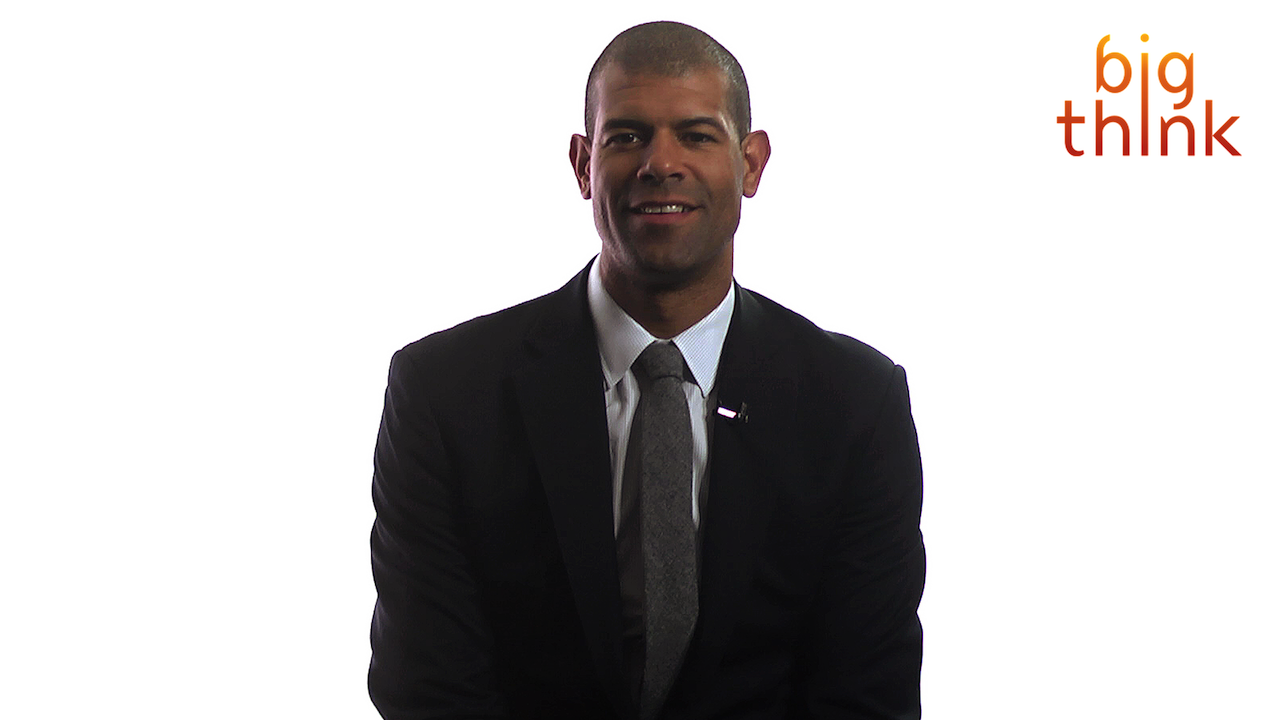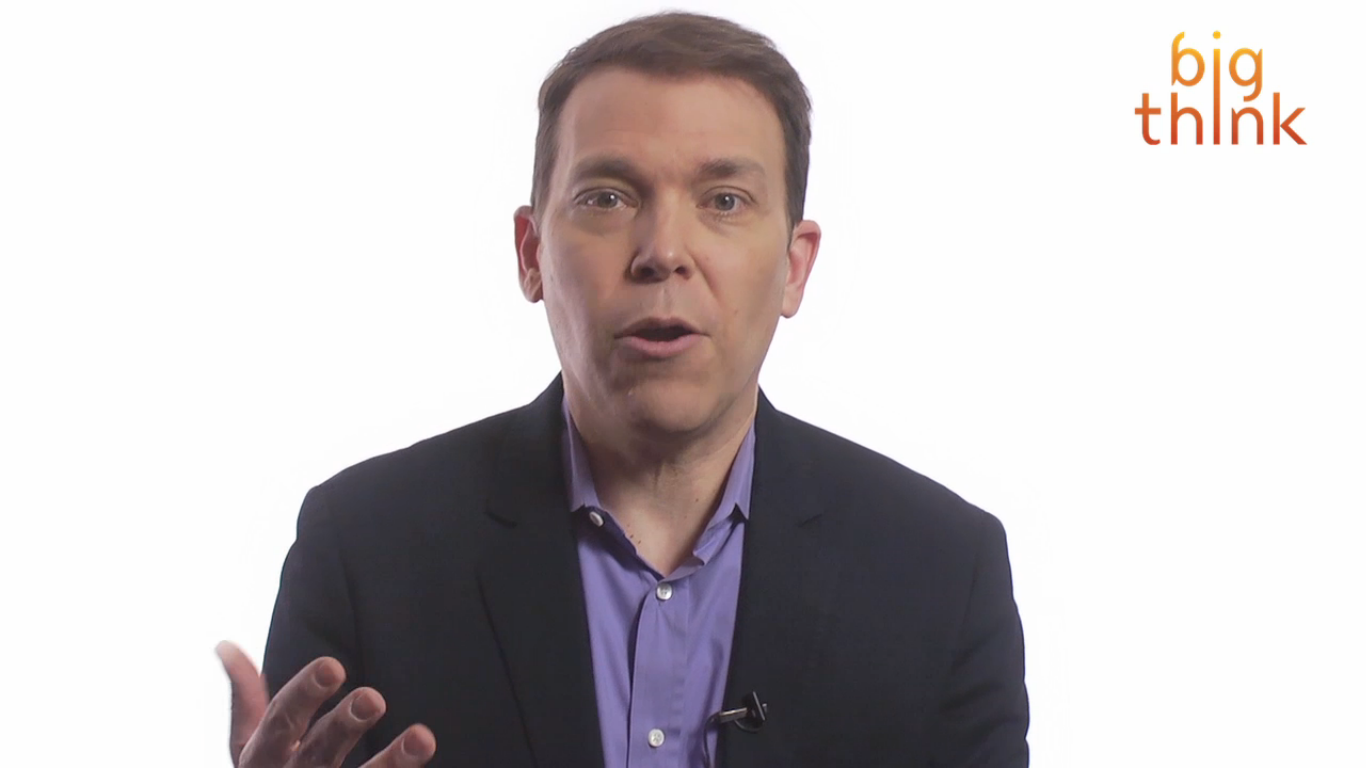Former Professional Wrestler Diamond Dallas Page returns to Big Think to share how yoga rescued his career in 1999 after a debilitating back injury nearly killed it.
Search Results
You searched for: Big Think
“Teamwork is the signature adaptation of” humanity, says David Sloan Wilson. And our ancestors evolved ruthlessly cooperative means of ensuring productive social coordination.
Sensors inside cars could soon monitor drivers for signs of distraction or tiredness, alerting them before an accident occurs as a result.
The chief executive officer and president of NPS Pharmaceuticals walks us through the health innovations we can expect in the coming decades.
Different neighborhoods suit different personalities and when these metrics align, people are measurably happier.
Legendary college basketball coach Dean Smith died last week at the age of 83. Former NBA player Shane Battier, who was recruited by Smith, but eventually settled on a rival school, recounts his memories of the man.
Nassim Taleb’s theories on unpredictable events can inform the MLB Draft’s selection process.
Author and marketing consultant Dorie Clark explains the basic tenets of thought leadership.
▸
3 min
—
with
Strong psychological reactions — call it the yuck factor — could prevent innovative ideas from maturing and therefore from reaching populations in need.
A new study, which followed nearly 1 million people over 10 years, concludes that smoking is even deadlier than we thought, accounting for more than 60,000 additional deaths per year and five additional diseases.
The next wave of retirees will be more tech-savvy than ever.
Evolution can be seen as a process of discovering logic that works well in a particular environment. But evolution can’t see what our foresight can grasp. In some cases the logic inherent in relationships of need (e.g. within groups) can be decisive.
Why are video gamers so obsessed? Because playing gives people a sense of purpose, and winning them makes them feel heroic. “There’s this kind of transfer of our confidence, of our creativity, of our ambition” from game-playing “to our real lives” says game designer Jane McGonigal. And there are organizational benefits as well: studies have shown that we’re more likely to cooperate with someone in our real lives after we’ve played a social game with them that involves a cooperative mission. In this lesson from Big Think+, McGonigal walks you through the ways in which gaming can lead to positive outcomes in the workplace. By the end of it, you may just want to integrate gaming into your break space design or your next corporate retreat!
▸
3 min
—
with
And are there independent ways to check? “Youth is the gift of nature, but age is a work of art.” –Stanislaw Jerzy Lec Each week at Starts With A Bang, […]
A new nationwide competition for young entrepreneurs may be in the planning stages thanks to a recent meeting between technology heavyweights and concerned academics.
Gaps in public services available to women are closing, but women still lack a participatory voice in economic and political matters.
“Companies really want inclusion but they often predicate that inclusion on the surrender of various forms of diversity that people bring to the table. So the idea is that if you modulate your outsider identity to adopt mainstream behaviors then you’ll be included. And so it puts people to this tragic choice between their identity and inclusion.”
To help the trick-or-treaters in wheelchairs have truly amazing costumes, rather than be Superman or The Little Mermaid in a wheelchair, the nonprofit Magic Wheelchair makes epic Halloween costumes by transforming wheelchairs into “awesomeness created by our hands and [the kids’] imagination.”
High-intensity exercise is better at preventing conditions like heart disease, diabetes, and stroke, than typical sustained activities like jogging or biking.
Marijuana might steal the headlines, but psychedelics are making headway in the American consciousness. DMT: The Spirit Molecule producer/director Mitch Schultz discusses this trend.
By analyzing the books, films, and organizations you’ve Liked on Facebook, computers can create a more accurate picture of your identity than your friends, family, or even your spouse can.
Author Bruce Feiler explains why arranging a 15-20 minute meeting each week will boost the happiness factor for everyone in the family.
A journalist tricked news outlets into reporting a bogus study to demonstrate the sorry state of science journalism, but was the sting operation ethical?
Jon Iwata, IBM’s senior vice president of Marketing & Communications, explains why freedom is the best social media policy for employees.
There are three things an idea must do to become a full-fledged scientific theory. How does the Multiverse stack up? “It’s hard to build models of inflation that don’t lead […]
Concerns over the amount of carbon dioxide released by drilling for natural gas could be eased by a new material created from inexpensive asphalt, the same substance used to pave roads.
Student achievement is higher in classrooms where digital technology delivers lectures and grades assignments.
You may not be aware of it, but certain judgment calls by you or your managers may be holding some of your best people back. In this lesson, management expert Jennifer Brown, a diversity training consultant who works with leading companies, explains the pitfalls and strategies for dealing with unconscious bias.
▸
7 min
—
with
Over a 22-year career at Goldman Sachs, Robert S. Kaplan had the opportunity to run various businesses and to work with or coach numerous business leaders. He says that successful leadership is less often about having all the answers—and more often about asking the right questions. In Part 1 of The Leadership Challenge, Kaplan explores three strategic key questions that leaders need to ask themselves.
▸
13 min
—
with



























